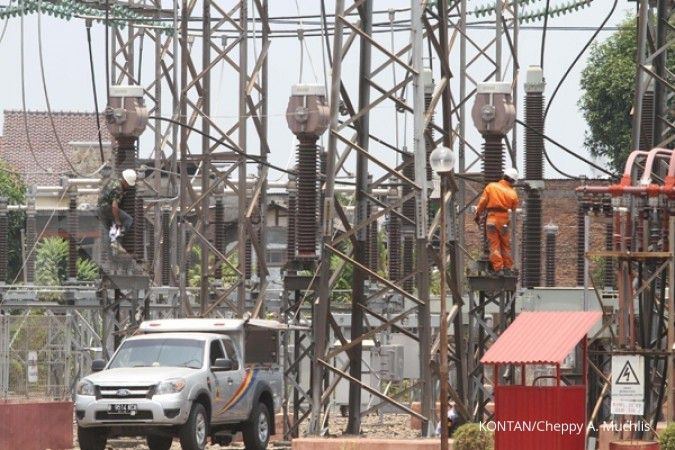JAKARTA. The program of 35,000 megawatts (MW) electricity, which has been revised to 19,767 MW is doomed to fail, after the Constitutional Court (CC or MK) canceled two crucial articles of the Law on Electricity that specify the private participation in electricity projects. First, CC annulled one verse in the Law on Electricity that allows the control of integrated business in electricity sector, ranging from power generation, transmission, to distribution. In other words, CC decreed that every line of business should be managed by different business entities. Second, CC canceled the clause that allows private entities to involve in the electricity business.
Head of the Legal Division of Advokasi Laskar PLN Riska Martina said that the CC’s decision has automatically aborted the Minister of Energy and Mineral Resources (ESDM) Regulation No. 38/2016 on the Provision of Electricity in Disadvantaged Areas. As information, the Minister ESDM Regulation No. 38/2016 does allow control of power generation business up to the distribution level in one enterprise. More crucially, the program of 35,000 MW for private investors is also jeopardized. In other words, the project had to be carried solely by PLN (State Electricity Company). The issue is whether PLN is able to manage the overall project. "It depends on the leadership of the PLN," said Riska. A source of KONTAN in PLN expressed surprise over the decision of CC. Even so, "Consumers should not confronted with the market mechanism," he said. The source added, as a result of this decision, PLN must purchase the entire private owned power plants, which are already in operation. "The contract mentioned, in case of force majeure PLN should buy all these plants. This is a force majeure and the state must provide the funds, and later PLN will manage (the funds)," he added. As information, PLN Workers Union filed a lawsuit against the Electricity Law to the Constitutional Court (CC). The Constitutional Court Justice I Dewa Gede Palguna asserted the private sector could still be involved in the supply of electricity to the public interest, in one condition: the state can have a full control over electricity.
The Constitutional Court stated that the supply of electricity for public use must be controlled by the state. "But that does not mean negating the role or involvement of national or foreign private sector, local owned enterprises (BUMDO), NGOs and cooperatives,” said Palguna through the official release on the website of the Constitutional Court, Wednesday (14/12). Chairman of the Association of Indonesian Private Electricity Producers (APLSI) Ali Herman Ibrahim regretted the decision of the Constitutional Court. According to him, to date the government still has control over the supply of electricity. This reflects on the authority to determine the electricity tariff. "So the state did not fully hands off from electricity," he said. But surely, the agenda of mega power project is facing dark times, due to the new uncertainties resulted from the CC’s decision. (Muhammad Farid/translator)



